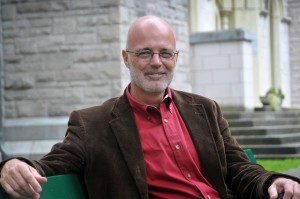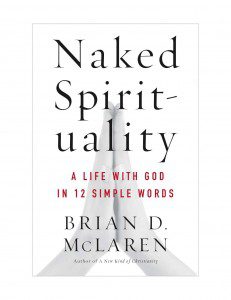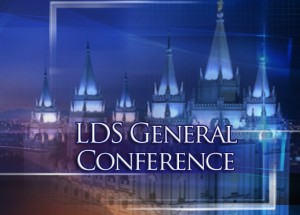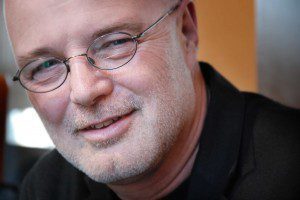Brian McLaren talks about Rob Bell’s critics, his own controversial writings, and what it’s like to be in the evangelical hot seat. Also on tap: his brand-new book Naked Spirituality.

One of the greatest aspects of blogging is that I get to interview my favorite writers and thinkers. Today and tomorrow, Flunking Sainthood chats with evangelical writer/activist Brian McLaren, whose new book Naked Spirituality is one that I think will surprise and delight a lot of people. –JKR
Flunking Sainthood: When I read A Generous Orthodoxy a few years ago, I remember loving the book but not the introduction, where it seemed like you were shadowboxing with unseen foes. Then I went to your blog and saw those foes in action (!), and I understood a little better about why you wanted to respond to some of the nasty criticism you have received. Which of your ideas and writings have generated the most controversy?
McLaren: Ah, that introduction. Some of A Generous Orthodoxy‘s biggest fans and its biggest critics were inside the publishing company that produced the book … which provides the background for that Chapter Zero that we added to the book at the last minute. One of the issues in AGO that generated a surprising amount of controversy was the idea that people could be followers of Jesus without being affiliated with any institutional representation of the Christian religion. Disassociating those two elements was really disruptive to some folks – it was inconceivable to them that there can be Jewish followers of Jesus, Muslim followers of Jesus, Hindu followers of Jesus … and yes, even some Christian followers of Jesus!
The fact that I said some nice things about Muslims in the book also was troublesome to some folks; for too many Christians, I think there is a deeply embedded counterdependent identity, a sense of “we are who we are because we are against them.” (That question of identity, by the way, is the subject of the writing project I’m just now beginning.)
With all the controversy surrounding Rob Bell’s new book, I recall the anxiety I felt right before my book The Last Word and the Word After That was published. That’s where I grappled with the conventional understanding of hell and its place in the larger biblical narrative. It was the third in a trilogy that began with A New Kind of Christian and The Story We Find Ourselves In. Astute readers could see that I was raising some deep issues in that trilogy, and so that raised some concerns.
But really, the place where I felt I got down to more of the core issues – where I believe we in the Christian faith have the greatest need for radical change – was in A New Kind of Christianity. The core issues, to me, are the first five questions that book addresses: What is the shape of the biblical narrative? What is the Bible, and what is it for? Is God violent? Why is Jesus important? and What is the gospel? Obviously, when you raise questions like that, you’ll generate some tension.
Flunking Sainthood: Now some of those same sharks are circling around Rob Bell for his alleged theological universalism and rejection of hell. Why do you think the criticism of Bell has been so intense? And what’s the best way for a writer to handle such scathing disparagement?
McLaren: Really, hell lies – figuratively speaking! – at the intersection of those five questions I just mentioned. The biblical narrative, for many Christians, is a narrative about sorting souls between heaven and hell. The Bible is the manual to help you avoid the latter and arrive at the former. God is violent, in the sense that God cannot rest unless God’s wrath is punishing with eternal conscious torment the souls of the imperfect, non-elect, and/or unforgiven. Jesus’ only ultimate importance for us is providing innocent blood to satisfy God’s wrath, and the gospel is good news about how to get to heaven after you die. I know that’s put quite bluntly, but that bluntness helps explain why there is such anxiety when anyone raises these kinds of questions.
Different writers, I suspect, have different callings in all this. For some, I think, the calling is to write the book and then engage in debate about the contested points. For others, and my guess is that both Rob and I would put ourselves in this category, the calling is to write the book as a public service, seeking to get the issues on the table in public view, and then step back to some degree and let others debate the fine points. There are scholars who have spent their entire lives specializing in each of these fine points, and so it makes sense, once the issues are on the table, to let those scholars bring out their best work.
I think we writers make two predictable mistakes when controversy arises. Some of us cave into the temptation to fight nasty with nasty, which never turns out well in my experience, since doing so is sub-Christian. Others of us are more tempted to trim our sails. We hold back or avoid speaking freely for fear of future attacks. In between, there’s the difficult path of trying to speak the truth as we see it, in love as we are capable of love, and when we get knocked down to get back up again and keep writing as faithfully as we can. Maybe Jesus’ words could be adapted to something like this for writers: “If they scribble a scathing review in your right margin, write another book and offer them your left margin as well.”
Flunking Sainthood: I admire your courage in speaking out, and have been a fan of your work for years. I think this new book, Naked Spirituality, is going to surprise both your admirers and your naysayers because it is quite different from what has come before. You say this book about spiritual practice is “a vulnerable book, tender in tone, gentle in touch.” What are you trying to communicate with this non-political, back-to-basics spiritual guide?

McLaren: Before answering this good question, I should note that some readers have already concluded that, on some level, this book could be my most controversial and subversive book of all, first because it tries to define vibrant spirituality in terms of the heart and soul more than the head and creed, second because it provides a framework of spiritual stages, zones, or seasons that helps make sense of our polarized religious culture, and third because it seeks to empower people to explore their spiritual growth “in secret,” which could be defined as “under the radar of traditional institutional religion.” This need to shift the locus of spiritual vitality from institutional space to what is done “in secret” – recalling the Sermon on the Mount – is at the heart of Jesus’ message and strategy, I believe, and I think it’s critical today. But that’s “a whole nuther story.”
I felt this book was trying to get into print because of a conversation I kept having with people in widely differing settings. For example, I can’t tell you how many pastors I’ve met who confide that they’re running on empty. More gets withdrawn from their spiritual accounts than they can replenish, and they’re pouring out their all but have less and less left in the well. Add to them the young – and older too – Christians I meet who have experienced a theological meltdown. Their old categories – be they Calvinist, Dispensationalist, Thomist, or whatever – have collapsed, and they’ve discovered that without the scaffolding of that theological system, there isn’t much left to their faith. In short, they’ve realized their faith was an ideology – a worldview – with little else.
Add to them the folks who dropped out of church because they kept encountering more wrong than good there, or more dysfunctional than healthy. Add to them the people who wish they could go to church, but every church in their area is anti-intellectual, anti-Democrat, anti-gay, anti-environmental, and so on … so they know they’re not welcome. And add to them the nonreligious folks for whom religion seems like a war zone they would never want to enter. For all their differences, all these people share the same hunger and thirst … for a life with God, a connection to God. And what I’m trying to communicate to them is – to use more theological language for it – that the Holy Spirit is ubiquitous. God is already with them, all around them, knocking on the door, ready to rush in if they would make some space for God. I want to help them learn ways or practices that have helped me open up some of that space.
This interview will be continued tomorrow.

